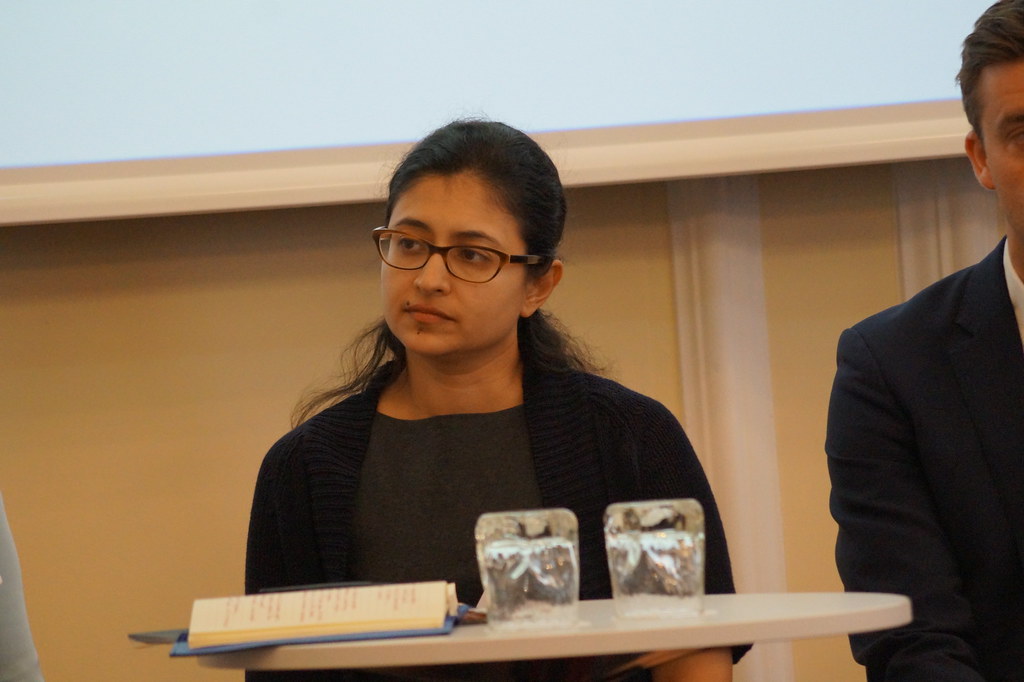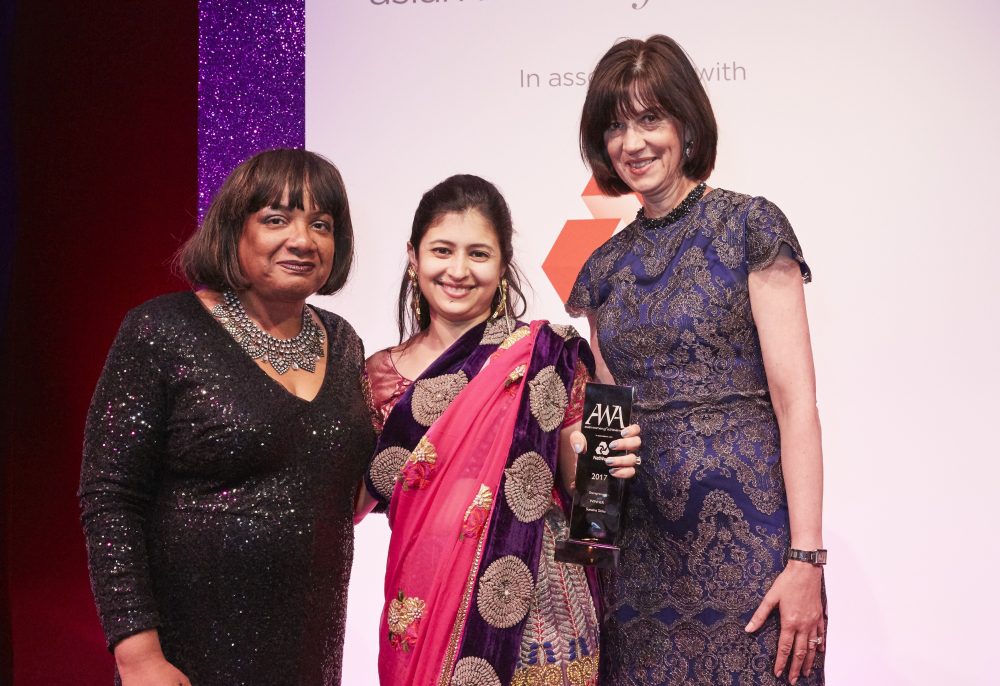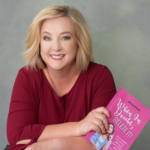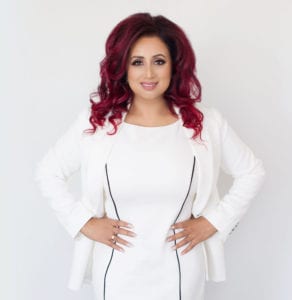Raj Girn: My guest today is a woman I truly respect and admire for her work in this space and for leading the charge in supporting women in finance and investing. She is the founder and managing partner of Cebile Capital, Sunaina Sinha.
Here is Part Two of our conversation:

Raj Girn: So I want to ask you this, Sunaina. Statistics show that less than 10 per cent of all investment capital goes to female-founded companies, even though female-founded companies and led companies to perform far better than their male counterparts. Then you add in ethnicity to the mix and the stats just go down even further. So much to garner your perspective on this. And then I, I’m going to kind of break it down a little bit into bite size pieces for all of those people out there who really do need to understand how to kind of tackle this, BIPOC women specifically.
So my first question for you here is mindset-based. Fundraising is and by itself, a very challenging task with stats like these is even disheartening for women looking to raise funding today. Even though we see so many female-led companies do very successful exits, do very successful IPOs, it’s still such a challenge for women in the raise game. So what advice would you give to them to prepare their headspace for the journey so that with the many roadblocks that obviously they’re going to face that you faced, that they can kind of rise above that and just stay targeted and focused on kind of where they’re looking to go?

Sunaina Sinha: Yes. So a couple of pieces of advice for all women out there looking to raise capital. The first is find your people who are going to understand your story. Is it because they understand an industry best? Is it because they funded something similar in the past? Is it because you know them through someone you know? Is someone in your network? Figuring out who your people are who are going to be best placed to understand your story and then go to them and find how you open that door. If they are well-placed to understand your story, the chances are that they will take your call, or they will take you as a meeting or a face-to-face meeting with you. And then if your story doesn’t land with them, really ask why? Because you have pre-screened to say to yourself, you know, these are the people who should understand my story.
One of the mistakes people make, but certainly women make, is that they start with everybody. I mean, just talk to everybody. I mean, just talk to dozens of people and hopefully one of them works. Well, you could do it that way. But the better way is to pre-screen that list down to these people should get me and really write it down on a spreadsheet. Why? Because they know so-and-so. Because they funded another business. Because I know them, too. They think highly of me because I work for them in the past. And there are wealthy individuals, whatever it is, write that list. And when you go down that list one by one and these people start taking meetings and calls with you, if they pass, really ask them why?
Because they would be able to then tell you what’s not working in your business, what’s not quite there yet. Then you can go back and fix it before you go back out to either to them or to a wider list of investors at that point having that profit and pivoted and iterated on the story with this group who would and could and should know you best. So that’s number one. Number two is that you actually have to be, I’m sorry to say, but as a woman and as a minority woman, you have to be that much better. Don’t take your first investor meeting and say, “oh, this is my first investor meeting.” Stop trying it out for size and practice your pitch, practice it. Not just once. If your colleagues who are white men are practicing it 10 times, you practice it 20. You find people sat in the shower, scenes in the mirror, find it, do it with your friends and your family. You go through the pitch dozens of times before you try it live on an investor.
If your industry or your sector needs a minimum viable product to look like this, do a bit more. Figure out what is the minimum viable proposition in your industry or sector, and do 25 per cent more. Sorry girls, that’s just what it takes to be that much better. I hate to say it, but that’s how the game is played. So when you go and say, “Hey, I’m looking for a seed round here. I’m looking for series A and look what I have done, so much more than so many others do at this stage.” You will get that second look. And that’s what we’re seeking. We’re trying to get you advantages that will make sure you get the looks, so you get the funding. Those are my two big pieces of advice. Don’t just do the same as others. Do a bit more. It would stand you in good stand
“If your industry or your sector needs a minimum viable product to look like this, do a bit more. Figure out what is the minimum viable proposition in your industry or sector, and do 25 per cent more” ~Sunaina Sinha
Absolutely. So much amazing advice. And it’s so much simpler, Sunaina, than we think it needs to be. We just need to put in the work. We’ve got to put in the extra work. And it just begs so many other tangents. I could go on, but I want to encapsulate a little bit about this whole idea that women have regarding female traits, male traits. You know, do I need to be more male than female? Does being female mean that I’m weaker? So I want to kind of broach that with you since gender appears to be a barrier in the race game, it’s just seems to be right.
And I’m sure that you will have a little bit more insight into that because the infrastructure was created by men to begin with, to serve men. So that’s like a whole other dynamic that we can go in. But I’d like to get your insights just because I want to help women and men out there that are looking to support women to better understand how to utilize their female and male traits. So I want to ask you this. Can you share some strategies you feel women should lean into that are typically considered to be male centric, that in your opinion, women should adapt to close the gender gap between them and male investors, thus opening that door wider to investment opportunities? Your thoughts on that?
It’s such a good question. And I’m often told that one of my strong muscles as a negotiator, because I do a lot of negotiation in my business when I’m trying to close these deals, is empathy. That I can tune in to what’s happening in the space around me and really make the other side feel that I get it, that I get them, that I get their issues, that I understand. And one of the muscles that women can use when you talk about trades now is so much of this conversation is about on balance X and on balance, Y chromosome. Right? So we can all practice because there are some very empathetic men out there as well and some very, very aggressive women, too. But one of the traits that come naturally to many women is empathy. I understand, in fact, sometimes it’s a weakness. Many women are too empathetic, and it holds them back. But how do you take that into a strength that you’re taking into the boardroom with you when you’re trying to close capital, or you’re trying to negotiate a deal for yourself or trying to hire employees or sell your product to someone?

Well, you understand and you understand because you listen, you listen, understand, empathize at a deeper level than your male colleagues. It’s an underused but highly appreciated art. I get told all the time that you really understood what I was saying. You couldn’t get me what I wanted, because sometimes you just can’t give everyone what they want. But you got it right about where I was coming from. And that’s really important when you’re in the game of building any business, including your career, by the way. So even if you’re going to your boss for a promotion and the boss is saying, no, you can empathize and say I see you in a difficult spot. I get that. I see. This is why. But here’s how I can help you then solve those issues. And then immediately the other person thinks that this is not zero-sum. This is not me versus you. This is us together because you understand me, and you get where I come from. You’re helping me solve this.
And it’s kind of like this thing of you sit across the table from each other, but actually you want to be sitting on the same side as you try to solve anything in life. It’s something that so many women say: okay, I do that with my kids. I do that with my partner. I do that with my family. How am I supposed to do that when I’m face to face with this guy who’s got a higher title higher rank, more money than me. I need him. Well, you absolutely can to try to bring this person onside. It’s an underused offer, in my view, and in the market in general and in most of the environments that I’ve seen.
Wow. I love that you bought that into the mix because I completely agree with you. If we can just tap into our sixth sense, I think that we would probably be a lot more understanding of where another person’s coming from, because oftentimes this is what happens, right? Enough people walk in and they’re so rehearsed and they’re so onside for themselves that they’re not hearing the things that are happening in the room, the nonverbal communications, as well as oftentimes the verbal communications. They’re not hearing the cadence, the pitch changes in the voice. And these are some of the things that I teach my clients to really hone in on and tap into, even with yourself, how you speak, how you take your pause, how you help a person step out of their own way in that room.
There’s an art to doing that. And it’s a skill that everyone can learn. And some people have it naturally, but it’s a learned skill. And so what you’re saying here is so important, guys, to take away with when you’re walking into that room. There’s a lot of innately female traits that can be used very naturally to even help those people who are very boys club to kind of get off their bandwagon a little bit. It helps them kind of ease the pressure themselves. I’d love for you to share if there was ever something that’s coming to your mind, Sunaina, where you use kind of maybe the more female side of your personality in a meeting or in negotiations that really kind of change the dynamic in the room. Is this something that comes to your mind at all?
“There’s a lot of innately female traits that can be used very naturally to even help those people who are very boys club to get off their bandwagon a little bit. It helps them ease the pressure themselves.“ ~Raj Girn
So many examples. I was negotiating a deal in the middle of the pandemic with two parties, one very large investor, an institutional investor based out of New York. And our client and the institutional investor had been someone I’d known almost 10 years. I very much had gotten to know that place and this person quite well. And lo and behold, we found ourselves in the middle of the pandemic in a conference room in Milan, Italy, trying to negotiate a transaction. The camps could not have been farther apart. You could drive a truck through the middle of the gap. I mean, this was how far apart these parties were. And they went to separate rooms and I had to go between the rooms trying to help them keep bridging this gap. How do we close this gap? How do we get the deal done? And one of the things that had gotten one of the parties stuck was a philosophical point. And he said this is a values-driven point.
This is a point on principle. You hear that a lot. And part of what people are getting stuck in a position. How do you unstick them? Because you have to disarm the idea that life is black and white, that life is actually a lot of it is lived in the gray. Most of it is lived in the great red line issues. But is it really that black and white? And so it was almost like a bit of a therapy session. Here’s what I need. Why I need it. Here’s why. What they’re saying is that you heard that from one side, and you just took it on in, and you helped them get it all out. You realize that one of the things most human beings struggle with, Raj, is that they don’t feel good. They don’t feel listened to. They just got it out of their body, literally. It was almost like a visceral thing I was witnessing and okay bring it on. Give it to me. Yes, it’s not been fair. I understand. Then you go to the other side.
Now you what you do not do as an empathetic negotiator, empathetic woman, you don’t offload that. You’re not the passer-by of messages. You don’t then go dump that on the other person. These are not the other party’s problems. These are very much the original party’s problem. And the other side has its own rationale for why it’s stuck in its position. And so that’s a party that is much more practical. They were much more sort of know one plus one is not equalling two, it’s equalling 1.75. That doesn’t work for us. They’re coming from a very analytical approach. I’ve got to make my numbers add, they’re not adding right now. So go figure this out. So once you’ve gotten all of that out of the system, that’s when the empathy of being able to say, “listen, I know the numbers don’t quite add up to two. Let’s figure out how we could get them to add to two. But please understand, here’s what this other side has gone through. Here’s what they’ve been through. Here’s why they have scar tissue. So maybe we can make it work through the numbers and maybe you’re not going to offer another dollar to them. But what can you offer in terms of other comfort to help them through this? You’ve got to help them through this.

And it was such an emotional and empathetic journey. And by the way, that same deal went through other wobbles where we thought we had a deal agreed on one side. We traded in the other side and each time employed that same approach and we got the deal done. It was a very successful deal. Both sides are very happy. It’s been a big win win for both sides. And on we go with life. But a great example for where people just need to get seen and hug. And sometimes it’s your place to just bear witness to that.
Oh, my gosh, that’s so powerful, folks. If you’re just joining me here, I am speaking with the fabulous founder and managing partner of Cebile Capital, Sunaina Sinha. We are really unpacking a lot of the fear that has been around the investment world and financing, especially as it comes to women-led companies, natural women, personality traits, how do we ensure that we’re able to bring them to the table so that they are adding value here as opposed to looking like traditionally we consider them to be weak points in negotiations? So it’s really something worth thinking about and sitting with guys. What values do you have innately within yourself as a person? And this is very, very particular to both genders.
What is it that you have that you feel that you can bring to the table that can add value to whatever the negotiations are that you’re dealing with? I think it’s really something for both genders to think about. I want to ask you this, Sunaina. What do you foresee happening in the investment world for women? Now that we are seeing . . . Let’s just talk, first of all, about more female-led companies that are IPOing and hitting unicorn status. Let’s deal with that piece first.
Well, you need some to get more in life. That’s how it goes. And we’ve all known this data has existed, that female-led businesses do better than those led by men. But actually, to see the headlines on them, that’s what matters. We live in a very optics-driven world around us. And so to see IPOs of female-run businesses, unicorn status, funding rounds, to see some go public is just so . . . You need role models in life. Men need those role models and those tombstones even more than other women. This track record, they need to say, wow, these guys have done really, really well. Investing in A, B and C, all three were run by women. I should maybe look at the next deck that passes by my email that’s run by women. Maybe I should look twice at it. That’s what we need. The men need the role modeling even more than women do.
Absolutely. That brings me to this whole thought around how you look at a lot of these higher education institutions and you traditionally feel that, especially some of the colleges that you’ve been through, Stanford, Harvard, you think it must be very male dominated. But it isn’t. Right now there is an equal gender split in higher education facilities like Stanford and Harvard. And I think that that’s something that we really need to pay heed to. I feel that even male investors need to pay heed to this, that women are coming in strong with perhaps another interesting dimension to innovate industries. What is your thought on that?
Yes, the problem is not the number of college students or MBA students who are men versus women. The problem is how many women remain in the workforce 10 years later. And those stats, I am very sad to say, are very abysmal. So if you’re losing your most talented, brightest stars, those who can get into an Ivy League can do an MBA from Harvard Business School or quarter and so few of them are minority, and I do mean minority. The stats change all the time, but we are talking about, well, some 40 per cent are going out of the workforce and never coming back. That is your problem. And that’s why the number of women who are entrepreneurs needs to be a lot higher than it is. But why is it not the number of female leaders in financial services or executive C suites, in management? It should be higher. Why is it not? It’s all about these women taking the off ramp to do what women choose to do with their lives, with their building families and so on.
And they choose not to come back because it’s disheartening to come back because the male colleagues or the other colleagues who did not take that time off have now risen in ranks. And now you’ve got to go back and start back where you were. You’ve lost your current knowledge. All these challenges then present themselves. And I have to say I think women each woman has to make her own choice in life. And I really respect those that decide that they’re calling in life is to be the stay at home mom or do not have a career at all. It is your choice. We are in an independent world. If you want to leave the option open to come back and have a career, don’t completely leave. Figure out how to be a consultant or an advisor. Dip your toe in the water and keep it in the water. No matter how hot it is. If it’s 10 hours a week, that’s all you can afford because you’ve got a baby at home. That’s what it is. Figuring out how you stay a little bit involved because you involved, not just for yourself and your career, knowing that those five or 10 hours a week, that’s all you have to give to your being and doing something else and nurturing a different part of your own being and identity. But also when it’s time to step back, step back three years later, five years later, 12 months later, whatever it is for you, you are not coming back cold. You have a narrative, you have a story to tell.
“Figuring out how you stay a little bit involved because you’re involved not just for yourself and your career, knowing that those five or 10 hours a week, that’s all you have to give to your being and doing something else and nurturing a different part of your own being and identity.” ~Sunaina Sinha
Oh my gosh, I love that. I think that must be one of the best pieces of advice I’ve ever heard about kind of how do we navigate our multidimensional role as women being that we are a force to be reckoned with when it comes to being in the workforce. Just because a lot of our innate personality traits lean nicely towards the discipline associated with being in the professional arena and being kind of knowing that where we’re coming in it as the underdog, unfortunately. So we are working that much harder. So why lose all of that when you take on the additional role? And I think that’s what it is, we seem to feel that it needs to be an either or. Or why can it not be an amalgamation of both just different percentages of time and effort that you put into it, so you’re constantly nurturing the multidimensional element of who we are as women and who we are as humans. I love, love, love that wonderful covey of wisdom. Thank you so much for sharing that. I mean, we think we know this, but we really don’t. I love it. So let me ask you this. I want to kind of add another dimension to the table here. What about women supporting women? Because I know that many pretend to support because we have this kind of scarcity mindset where we feel there’s just only a little bit of space at the top of my industry for women, because that’s what history tells me. Can you can you tell me your thoughts on that?

Oh, it used to be a big problem. It’s getting better. But I remember in my first job out of Stanford, I had this one woman who was a director who just absolutely hated the fact that I was the shining superstar that the CEO loved and the president loved and so on. And I will never forget as long as I live, I will not forget how this woman made me feel and how she would put me down and sideline me and not copy me on emails and just all these different things. And I couldn’t understand what I’ve done to this person. And quite frankly, these experiences, a lot of women have them where women are not there to support other women. Here’s my advice to women, both to other women. If you can’t help, please don’t hurt. If you can’t help, don’t hurt. Don’t get in our way. Don’t sideline her. Don’t tell her off. Don’t put her down. Just say nothing. That’s all we need from me. Please just back off. Say nothing if you can’t help. Your help is welcome. We are very grateful. We all stand on the shoulders of giants and other people. That’s how we got in here. And guess what that good turn is never forgotten. The universe will bring it back to you twofold. Please trust me. That will always happen. It may not happen one to one in that moment with this person, but you will get the goodness back. But if you can’t help, don’t hurt. It is getting a lot better. I do think there’s a generational thing to your point very aptly.
“If you can’t help, don’t hurt. It is getting a lot better.” ~Sunaina Sinha
So Raj, that this used to be the case where they could only be one woman in the C suite. So we were all competing for that one open slot, wherever that may arise. That is changing. There’s so many more women now in the C suite. It is not nearly enough. But I think companies, because of what’s happened over the last few years, companies are realizing that they actually cannot succeed. Even in financial services, folks are saying, “I can’t hire you for this mandate or this transaction because you’re not diverse enough.” Investors have diversity and ESG mandates and it’s changing a lot faster than it has changed for 100 years. Not nearly enough, but I think you’re seeing more women willing and able to listen and hear and say, “I don’t know how I can help but maybe try this, maybe try that.” You’re seeing a lot more collaboration than you did maybe 20 years ago. Not nearly enough. And so my advice to all women is when you have another woman, even if you hate her guts, even if you don’t agree with anything she’s saying, even if you think she’s no good at her job, please don’t hurt her. If you can’t help don’t harm.
Absolutely. You can’t help. Don’t harm. Guys, that’s like a mic drop moment right there, folks. It’s just really something that you need to tap into because this is where kind of the insecurity and the lack of confidence and all these other things start to factor into through how oftentimes women are nurtured differently than men. And again, that’s a whole other conversation that I’m bringing you back on to have for them. But I want to add this other kind of element to this, because I feel this is also extremely relevant, especially today, something that I feel that needs to be more of, and that is male allyship and there is a lot more male allyship than there ever was in the past. But I want to ask you this. Having experienced firsthand how to navigate the world of male domination within your specific industry, are there any tips that you can share that you feel will help with the confidence gap?

Yes, so I have a few skills that are very tangible, very action oriented, and I have a few philosophical tips. I’ll start with the action-oriented tips because it’s something you can do straightaway. You have to figure out what is it that you can do to have that equal presence in a room. So 70 per cent of communication, we alluded to this earlier, 70 per cent of communication is nonverbal things like how you sit, the poses you take on when you’re in a room, the presence you have. There is data on this. You teach this, other people teach this. You go out and study it. How do you build more presence in a room to establish yourself as a force? Simple things like that. If you are not good at speaking, articulating, presenting, go get that skill. So many women who are so brilliant at what they do, but they just don’t know how to put themselves across. Easily learnable skills as you know. Go fix it. Don’t wait to then be knocked back. If you don’t communicate clearly and you have that sense or you’ve heard that sense, or you are finding that your message is not landing, go build these things, go build a physical presence in terms of power poses. There’s a lot of research around this out there. Go study it and then go get the actual hot skills on public speaking, on presenting, on negotiation, if that’s your game. These are loadable skills, ladies.
Go do a course or go take a class on it or go join the confidence academy and learn about it. So these are tangible things. Philosophically, you have to come out of the mindset that you are in some way, shape or form deficient or not lacking. Go to the place of abundance. There is more than enough here for all of us, men and women, all the women who want it, all the men who have it. Come from a place of abundance, there will be enough for you. When you walk in the room going, “Oh, well, I’m the only woman in this boardroom,” which, by the way, 99 per cent of my career it happened unless it’s a woman from my team, in which case there’s two of us or I’m the only minority here. Put the doubts aside. The doubts, create doubt first in your mind and then knock your confidence back then create the doubt in the other person’s mind because your confidence has taken a knock back. Don’t take all of that insecurity. Take all of that lack of confidence. And literally before you walk into the room, here’s what I advise people: literally physically in your mind for thirty seconds, put it in a box and leave it outside and go in thinking I know as much as they do and I’m going to come here and do my thing. I’m going to do my presentation, I will do my negotiation, whatever it is. So that, I think, is the philosophical power behind all the action-oriented steps that women can take.
“Literally before you walk into the room, here’s what I advise people: literally physically in your mind for 30 seconds, put it in a box and leave it outside and go in thinking, I know as much as they do and I’m going to come here and do my thing. I’m going to do my presentation, I will do my negotiation, whatever it is.” ~Sunaina Sinha
You know, you touched upon something there that I want to ask you about right now as well. And that is the ethnicity gap. We know the infrastructure of society, especially since the Industrial Revolution a couple of hundred years ago, was where we have the pyramid system, where white males sit at the very top and black females sit at the very bottom. That just is the way that the infrastructure was created. The layers that are stacked up against women of colour are vast and deeply entrenched in the infrastructures of business, even to the till today. There is so much research that supports this. So a couple of questions for you on this, Sunaina. What is your take just specifically on what I just said there?
I think the take is that this is the truth of this moment in time. There’s no other way to put it. What you’re saying is completely right. It’s historical in context so we’ve contextualized it. And we’ve also acknowledged that it has to change and that change doesn’t come easy. Human beings are not Ferraris. They cannot go zero to 60 in three seconds. It takes time for change to evolve. Here’s a trick that I’ve learned. I think that making people aware of how different and perhaps unique your journey is can make a big difference to how they view you. And I was talking to a lovely lady who was still very early in her career, came to me for some advice, and she said she works in a group of 60 people where she’s the only woman of colour. And she says when she mentioned that to her colleagues, they didn’t even realize. They’re like, oh, yeah, you’re right. Well, you know, my advise to her was, say it more often. Remind them how unique your journey is. Don’t people don’t know what they don’t know.
You don’t realize how hard and different and unique you are or your journey might be. You don’t have to do it every day, but they should know this is your context. This is how you grew up. I grew up in an Indian family, was the oldest of four, competition for the ice cream was fierce on a Sunday. Whatever it is, make it your story. It is really powerful for people to understand your context. And what I find a lot of minorities doing just ignoring it. It doesn’t exist, brushed it under the carpet. I’m the same as everybody else in terms of what I do. And you might be, you may even be better, but there is a story to your journey that is obviously true for you. And then within, in select contexts, you don’t have to throw it in people’s faces. It’s good to remind them. I’m someone who grew up here. I grew up in the emerging markets where what I’m doing today was not the norm.

Whatever it is you do that makes you who you are. Maybe you grew up in a small town. Maybe you grew up with Indian parents or African American parents that really struggled to raise you. Whatever it is, throw it out there. Colleges ask for it. Colleges ask, what is your journey? What hardship did you face and how do you overcome it? And they actually credit you for overcoming the hardships. And the workplaces need to do that, too. But they can’t do that. They don’t know how to do that if you don’t share that journey. So don’t do it every day. No one’s asking you to go overboard and to place it on your resume screen on your foot. The people who matter make sure they know what your journey has been. And that acknowledgment of hey my journey’s been a bit different to yours. I grew up like this and then I did this and that’s how I got here. And I’m so grateful for the opportunity to be here. That little bit really makes a huge difference of saying, you know what, let me contextualize me for you, because you may not get it given the way you’ve grown up.
Let me contextualize me for you guys. That is such an important statement for you to realize why you need to actually speak to be heard. It’s very important. Sunaina. Oh, so how do I encapsulate the ending of this conversation of ours? I mean, let me ask you this. How do you feel we can work together in the professional arena and at home? Actually, because you bring work home, right? And there’s expectations of who we are as women in the home, especially if we come from a strong cultural background. How do we do that to push towards a more equitable playing field, both in the professional arena and in the home environment?
“That is such an important statement for you to realize why you need to actually speak to be heard. It’s very important” ~Raj Girn
Yes, I think that we could do another hour on how to contextualize powerful women, working women for cultural backgrounds that I’m not used to having them. Yes, that’s a lot of society. I’m coming back. There’s so much to unpack on that one. What I’ll say for now is, please, ladies, be unapologetic about your choice to be a working professional, to be a stay at home mom. Whatever it is, we find ourselves spending too much time explaining with a view towards this is why I’ve done what I’ve done. And almost saying I’m so sorry I’m so different. Be unapologetic, be factual and honest with yourself and your family members and your community, but be unapologetic that these are my choices, and they’re right for me without having to explain them. I think you take the power away from you when you do that, when you apologize for who you are because you’re explaining or defending you. Take the power back, use your voice to tell a story, and do not try to defend or even pretend that you may offend or may not offend. Be unapologetic. That’s my big message on that one, especially in households and communities that are perhaps a little bit more conservative and not used to seeing women in this context.
Absolutely, folks. The show is entitled How to Be Seen, Heard and Valued as a Woman in the Male Dominated World of Finance. And you’ve seen the so much more to that than just being specific to an industry. You’ve heard Sunaina talk about some of her insights, some of her lived experience and some of the tips, tricks and parts of her personality that she’s really honed in on to understand how she can bring it positively to the table. Sunaina is there anything that you’d like to add about this particular subject matter that I haven’t touched upon that you’d like to leave everyone with as we close out?
While we have covered so much ground here, what I would say to all women out there who are listening. Own your journey, don’t be a spectator and be an active participant. What do I mean by that? It’s not just tourism. It’s really make deliberate choices. Don’t go with the flow and suddenly wake up and say, what have I been doing working at this company for the last four years? Like, it’s just gone by. It’s been very comfortable. Make a deliberate choice. I’m here for this reason. Come up with an active choice to be and do what you’re doing in that moment and why it’s right for you and why it resonates with your being. Be active in your own career. Be active in your own life. That will be my parting thoughts.
I love every single thing about what you just said and the hour that we spent together since then. Thank you so much for joining us for this really important discussion. You are such a rock star and a superstar in my mind, and I just cannot wait to see so much more of your lived experience and how you bring all of what you learn to the table to just keep pushing forward this whole idea that we have to all be working together in order for us to all succeed. Thank you so, so much. And, you know, I’m going to bring you back on. It has to happen.
With pleasure, And thank you so much for having me today Raj.
Absolutely, Sunaina.
Thank you so much for hanging out with Sunaina and I folks, I really hope that you got some real value from our discussion and that you understand the importance of leaning into both your uniqueness, also understanding how to take advantage of the status quo that, you know, you can really win in if you understand how to move forward and bring the uniqueness of who you are to the table. But to also understand on the other side that there are other people that also have something of value that they need to be heard as well. So this is not a one-sided journey, guys. It is a flow between two different sides that, as Sunaina rightfully said, you should work towards sitting on the same side of the table. That’s when everyone wins.
For more trainings like this, please subscribe to our YouTube channel at The Open Chest Confidence Academy on podcast platforms at Apple, Google and Spotify. Search ‘The Transform Your Confidence Show.’ I also encourage you to join a free coaching newsletter community at www.theopenchestconfidenceacademy.com/newsletter and join our free professional development incubator on Facebook at Transform Your Confidence. Until next time, have a great day.











